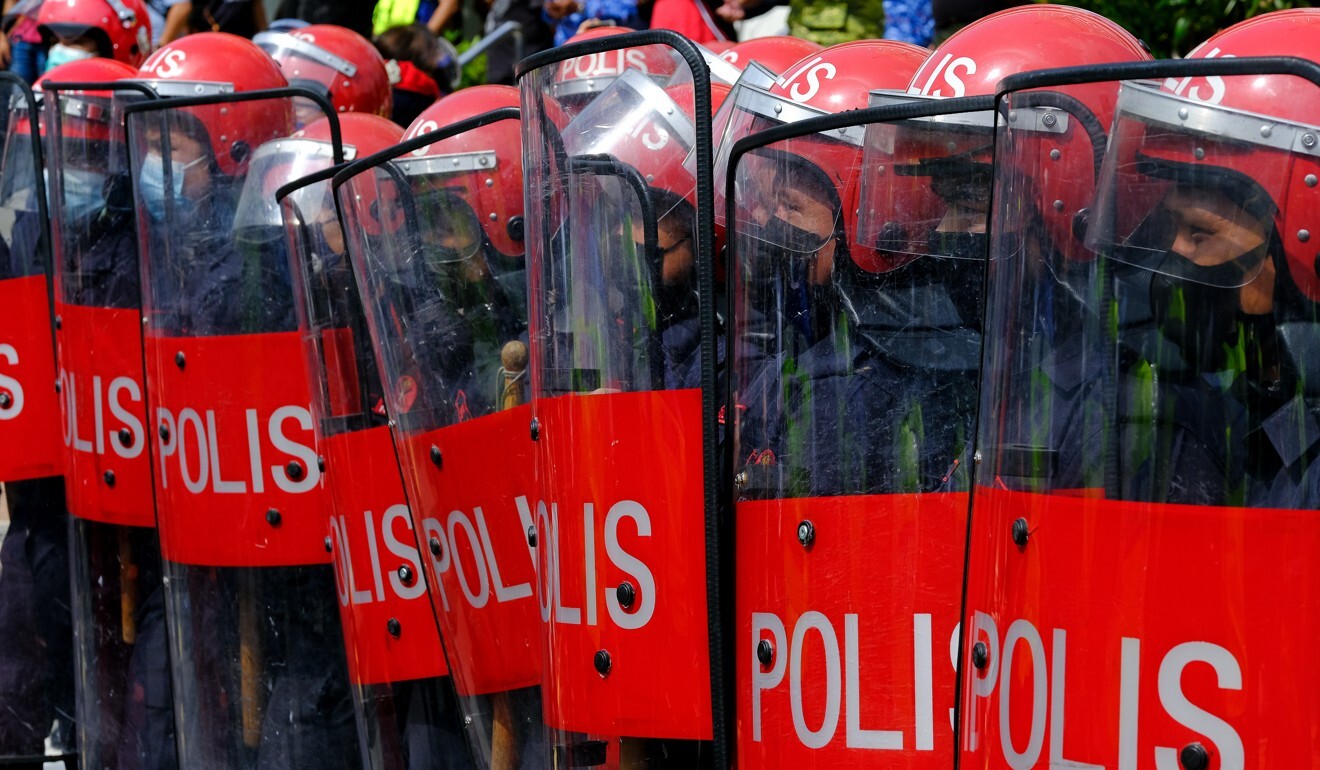
As ‘pandemic premier’ Muhyiddin survives yet again, what’s next for him – and Malaysia?
- The prime minister is still the prime minister even after royal rebukes, opposition protests, youth demonstrations and a loss of support
- While many believe Muhyiddin’s days at the helm are numbered, Mahathir’s reinvention shows political memories are short. Can the current PM do the same?
In the past few days – and following the insistence last month of the king, Sultan Abdullah Sultan Ahmad Shah – the Malaysian parliament was called for an extraordinary sitting. Amid the shouting and name-calling from the opposition, a bomb was dropped: de facto law minister Takiyuddin Hassan declared that the pandemic-related state of emergency had been lifted five days before parliament convened.

The early revocation of the emergency annihilated all hope for lawmakers to debate, let alone vote against, any of the ordinances that derived from the extraordinary powers given to Muhyiddin by royal green light in January – and potentially show the prime minister lacked the support of the parliamentary majority he needs to stay in power.
Sultan Abdullah’s response was to issue a statement of disapprobation that the state of emergency had been revoked without his consent. Amid royal protestations and allegations that the government had orchestrated an unconstitutional move, the opposition called for Muhyiddin to resign – leading to an avalanche of political shifts amid calls for a new government. For a few days it seemed as if many were celebrating the demise of the prime minister’s political career, but he has refused to back down.
Muhyiddin Yassin says he will prove he holds majority in parliament
Muhyiddin is shaking off rumours and detractors, including the king himself. And despite claims to the contrary, no one can prove that he has effectively lost his majority.

02:01
Malaysia’s Covid-19 case toll tops 1 million as nation sees record day of infections
In the mid-1980s, Malaysia was one of the “Asian Tigers”, while today the country is one of the most badly impacted by the pandemic. Back then Mahathir had the backing of a strong majority, and economic growth was in full swing. He had also effectively and symbolically emasculated the country’s royal families by amending the constitution. Muhyiddin’s appointment by the king in March last year gave the impression of a certain closeness to the royal leader, though this relationship seems to have taken a different tone.
However, the boldness of Muhyiddin’s strategy and the confusion it has created, combined with the chaotic responses of a disjointed opposition, have allowed him to maintain power. Clearly, his governance sits just on the edges of democracy. Yet even if Muhyiddin’s political strategy remains in line with what the constitution permits, it has tarnished his government’s image. In a global context, where the pandemic has been used as a pretext to strengthen autocratic leadership, he needs to soften his image and restore trust among the people. Can Muhyiddin reinvent himself?
Muhyiddin battles for political life as royal peace offering fizzles

If Muhyiddin wants to be someone else other than the Pandemic Premier, he needs to get going now. After a Wednesday meeting with the king, he has announced that he will call a no-confidence vote in September when parliament reconvenes. Parallel to his efforts to rebuild, or confirm, his majority, Muhyiddin needs a better narrative to circumvent the multiple crises and neutralise the desires, however fleeting, to overthrow him within his own coalition.
Will Muhyiddin’s showdown with the Malaysian king be his undoing?
The confusion and lack of communication over the country’s pandemic National Recovery Plan have left Malaysians totally lost. Urgent measures are necessary to restore eroded trust in the government and state institutions. These measures must address the multiple traumas Malaysians, particularly the youth, are suffering from: economic despair, physical and mental exhaustion, and fear of the future. Foreign representatives need to get a better vision of Muhyiddin’s reform agenda beyond the pandemic, if any, as they still see opposition leader Anwar as the only democratic alternative.
It is up to Muhyiddin to invent a better story for himself and show the people he is not just the prime minister by default – since Mahathir resigned, and no election can be held due to the pandemic – but the correct, albeit controversial choice, for Malaysia. Unless, of course, the prime minister’s resilience has already surpassed his own ambition: maybe for Muhyiddin the underdog, the game is the goal. If so, the prime minister has won on all fronts.

